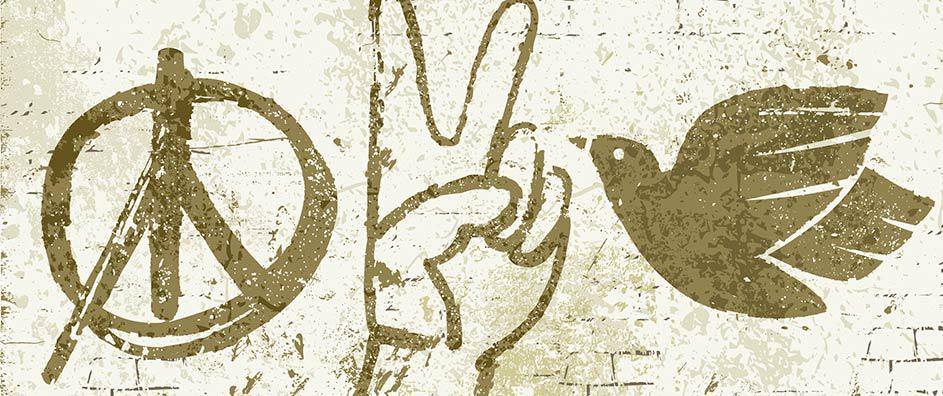Resilience is a multifaceted construct encompassing emotional, psychological, and spiritual dimensions, which can significantly contribute to peace at both individual and societal levels. Within the framework of Bahá’í teachings, resilience is not merely a response mechanism to adversity; it is an essential quality that can foster harmony and understanding among diverse communities. This article elucidates the intricate relationship between resilience and peace, while exploring several critical aspects aligned with Bahá’í principles.
To commence, it is imperative to delineate what entails “resilience” in the context of Bahá’í beliefs. Resilience could be viewed as the capacity to recover quickly from difficulties or challenges. However, in a Bahá’í context, resilience transcends mere recovery. It embodies the ability to maintain a constructive attitude amid trials, drawing upon spiritual resources and collective strength. The Bahá’í Faith posits that individuals can build their resilience through spiritual practices such as prayer, meditation, and community engagement, thereby creating a solid foundation for peace both internally and externally.
One of the paramount teachings of the Bahá’í Faith is the recognition of the interconnectedness of humanity. This principle underscores that personal resilience is intimately linked with the resilience of communities. Resilience arising from shared experiences fosters empathy and understanding among individuals, facilitating the creation of strong, peaceful communities. In times of societal upheaval or conflict, individuals with a resilient disposition can become catalysts for peace. They encourage open dialogue and forgiveness, further weaving the fabric of unity.
Moreover, active participation in community service and social development initiatives is a crucial avenue through which Bahá’í teachings advocate for resilience. Engaging in service to others cultivates a sense of purpose and belonging, which is vital for emotional stability. Resilient individuals, when involved in altruistic endeavors, can channel their struggles into constructive actions that benefit society. This cycle of giving and receiving enhances the collective resilience of communities, demonstrating the profound interplay between individual fortitude and societal peace.
Additionally, the Bahá’í teachings emphasize the importance of the development of virtues as a pathway to resilience. Qualities such as patience, compassion, and integrity are seen as fundamental to both personal growth and the establishment of peace. These virtues enhance an individual’s ability to navigate adversity effectively, transforming challenges into opportunities for growth. By inculcating these attributes within oneself, individuals are more likely to engage peacefully with others, resulting in a harmonious coexistence.
Furthermore, the role of education is paramount in the Bahá’í understanding of resilience. Education equips individuals with not only knowledge but also critical thinking skills and emotional intelligence. A well-rounded education fosters resilience by enabling individuals to adapt to change, approach problems creatively, and understand differing perspectives. Through education, individuals can also engage critically with societal issues, thereby contributing to a more peaceful world. The Bahá’í teachings advocate that education should be universal and accessible, ensuring that every member of society has the opportunity to cultivate their resilience and, in turn, contribute to collective peace.
Another pivotal aspect of resilience according to Bahá’í principles is the importance of spiritual knowledge. It is maintained that spiritual insights provide deeper understanding and context to the challenges individuals face. This form of knowledge goes beyond academic achievement; it involves an understanding of one’s purpose, the interconnectedness of all, and the divine attributes that can be manifested in one’s behavior. Such understanding fosters a resilient mindset, equipping individuals with the fortitude necessary to confront life’s quandaries. When individuals act in accordance with spiritual principles, they create a ripple effect, promoting tranquility and cooperation within their communities.
In addition, the concept of collective resilience cannot be overstated. In times of crisis, communities that can collectively harness their spiritual and emotional resources exhibit greater resilience than isolated individuals. Bahá’í communities seek to develop a collective ethos where each member contributes to the overall well-being of the group. Programs that promote consultation, shared problem-solving, and mutual support are instrumental in building such collective resilience. Through collaborative efforts, members can weather storms more effectively, thereby promoting peace and mitigating conflict.
Furthermore, the Bahá’í teachings advocate for the importance of setting goals and striving towards them as a means of building resilience. When individuals pursue meaningful goals, they cultivate hope and a sense of direction that can greatly enhance their ability to navigate adversities. Furthermore, setting collective goals within communities fosters unity and cooperation. The pursuit of shared ambitions creates an environment where resilience can flourish, providing a fertile ground for peace to take root.
In conclusion, resilience encapsulates a vital element in the quest for peace as delineated by Bahá’í teachings. By cultivating personal and collective resilience through spiritual practices, community service, the development of virtues, and education, individuals can transform their lives and, subsequently, the world around them. The interplay between resilience and peace is both profound and transformative; as resilient individuals navigate life’s challenges, they inadvertently become beacons of hope and harmony within their communities. Ultimately, the teachings of the Bahá’í Faith illuminate the pathway toward a resilient, peaceful humanity, emphasizing our shared responsibility to foster a better world for all.
